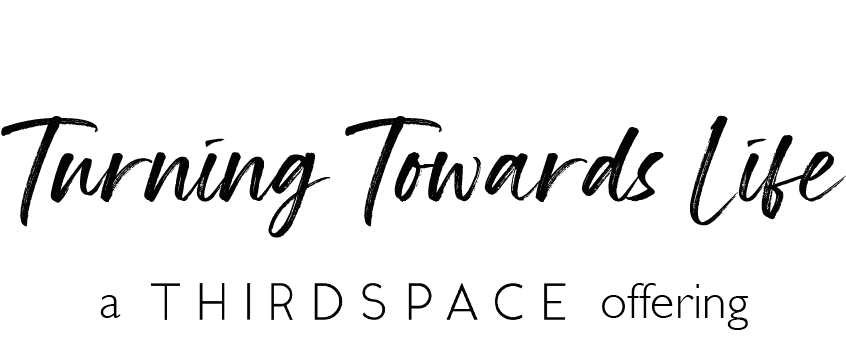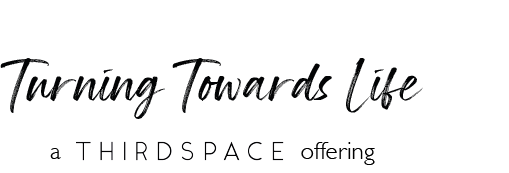Relational Power as Love, Episode 186
It's easy to use whatever power we have in the world as a way to make ourselves feel safe and in control. But what if we used our power not to reinforce being in a position of 'power-over-others' but instead to cultivate the conditions in which mutuality, emergence, and reciprocity between us could be born - in our organisations, with our life-partners and romantic partners, in friendships, as parents?
This week's Turning Towards Life is a conversation about ways in which we might turn whatever power we are given from 'control' into love, hosted as always by Lizzie Winn and Justin Wise of Thirdspace.
This is Turning Towards Life, a weekly live 30 minute conversation hosted by Thirdspace in which Justin Wise and Lizzie Winn dive deep into big questions of human living. Find us on FaceBook to watch live and join in the lively conversation on this episode. You can find videos of every episode, and more about the project on the Turning Towards Life website, and you can also watch and listen on Instagram, YouTube, and as a podcast on Apple, Google and Spotify.
Here's our source for this week, chosen for us by Lizzie.
Relational Power as Love
Faced with inevitable inequalities, people with relational power will choose to bear a larger burden so that the weaker have a chance to develop their own relational power. Unlike unilateral power, relational power is not competitive in the sense of being mutually exclusive. Relational power is like love: The more we love each other, the more both of us can grow in love. To achieve this state will require that we take turns carrying the burden of love when one of us is less loving, but, in the long run, your goal is to increase my love, my relational power, and for me to increase yours.
As Loomer explains, “In the life of relational power, the unfairness means that those of larger size must undergo greater suffering and bear a greater burden in sustaining those relationships that hopefully may heal the brokenness of the seamless web of interdependence in which we all live.”
People who live in relational power discover values to which they would otherwise have been blind. By listening with active openness, they help other people to articulate their own values more clearly and so to bring a richer vision of value into the relationship. “Under the relational conception of power, what is truly for the good of anyone or all of the relational partners is not a preconceived good. The true good is not a function of controlling or dominating influence. The true good is emergent from deeply mutual relationships.”
From Process Relational Philosophy by Robert C Mesle

